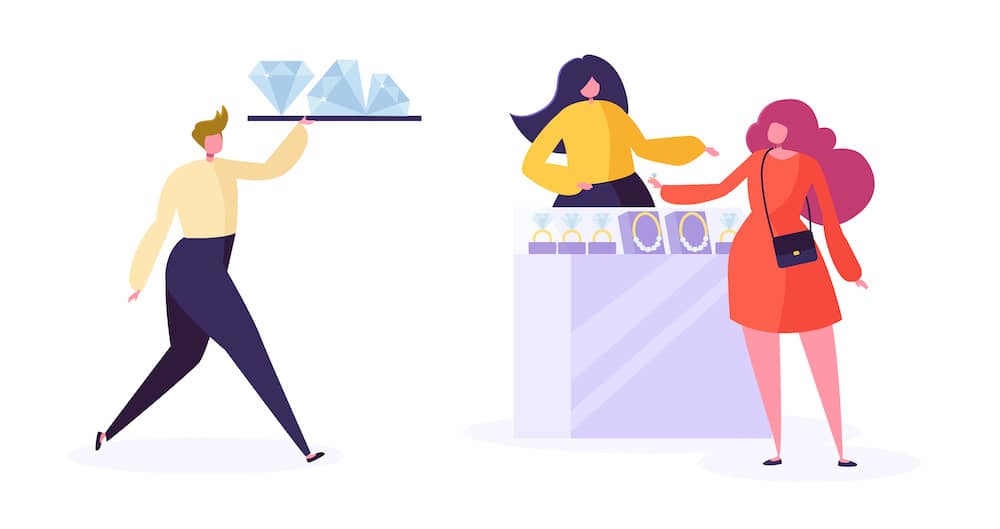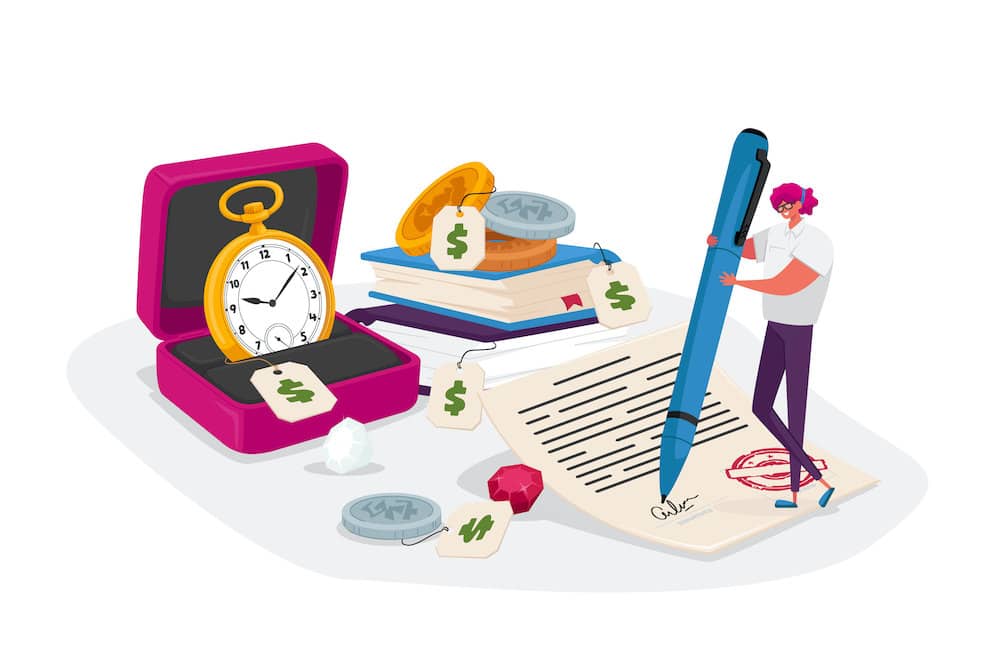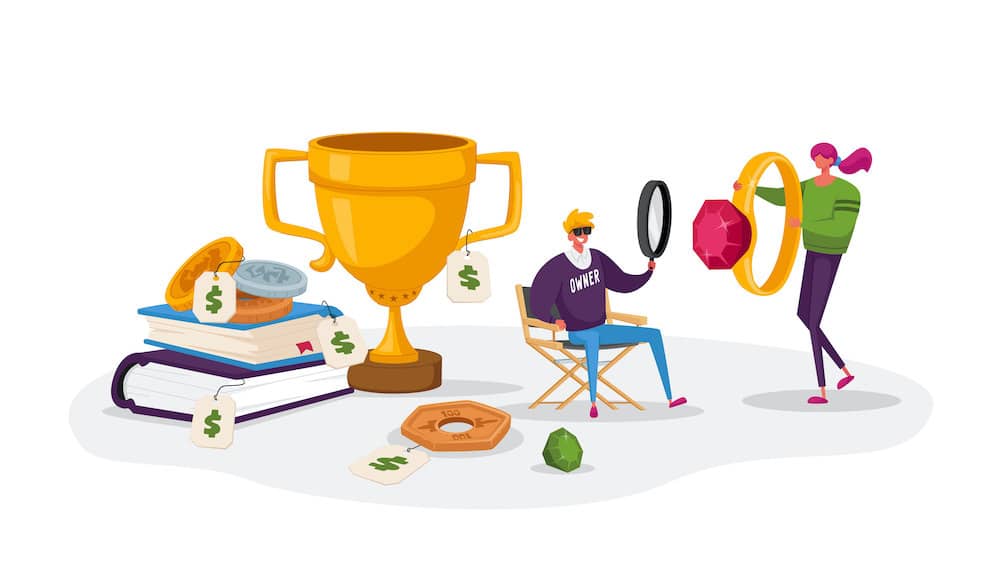There are a lot of different ways to access quick cash. Two of the most popular options are payday loans and pawn shops, with some significant differences between these two options.
We'll explore the differences between these two short term financing options, talk about how they work, what they offer, and much more. We'll also highlight how payday lending has evolved compared to pawn shops to operate in the online space.
Ultimately, you have to make your own decisions about which quick cash options make the most sense for you. But to make an informed decision, you need to know what your options are and how they compare to one another.
Background on Traditional Payday Loans and Alternative Lenders
Applying for payday loans is simple enough. It's a short term loan that gives you cash right away, and in exchange, you pay back the loan amount (the principal) plus interest out of your next paycheck. This allows you to pay bills and manage your cash flow demands right now, rather than waiting until your next payday.
It can be extremely beneficial for helping with unexpected or emergency expenses, urgent bills, or weeks with fewer work hours or tips where you need help making ends meet. It also may be one of the only forms of funding that is available to you if you need a bad credit payday loan.
Payday lenders are often found in traditional brick-and-mortar storefronts in strip malls around the country. They may offer other loan services, such as title loans or other financial services like check cashing; however, they have to offer payday loans to be considered a payday lender.
These loans are unsecured, meaning they don't require collateral like your car or home to secure or guarantee the loan. The lender takes many risks since they only validate your income and employment information in most cases and have no other guarantees you'll repay the loan. This means that traditional payday loans often have a very high-interest rate.
Background on Pawn Shop Loans and Pawn Shops
Many people don't have much experience with pawn shops. Much of their knowledge may come from TV shows like the popular US program "Pawn Stars," which follows the action at a Las Vegas, Nevada-area pawn shop. While popular entertainment isn't always the best way to learn about financial topics, the show does a good job explaining some of the basic aspects of how pawn shops work, at least in America.
Pawn shops may seem similar to traditional lenders at first glance – they're often in storefronts in strip malls and offer lending services – but they're quite different. Pawnshops are also ancient in origin, pre-dating payday lending by hundreds of years.
They offer several additional services and options, which we'll highlight in the next section. Most of these are focused on providing you with quick cash, either in the form of payment for the sale of goods or through loan-like options or outright loans. They may also offer title loans and/or check cashing, just like private lenders, but those are secondary services and don't define a pawn shop.
Though some may offer payday loan services, that's not usually their main function. The ability to pawn goods, which is a form of credit, is the pawn shop's fundamental requirement.

Pawn Shop's Services
A pawn shop's services can usually be divided up into three key areas – pawning goods, selling goods, and cash loans, in that order. Pawning goods is an essential element to be a pawn shop.
And many pawn shops (though not all) also offer some loan services, which may include payday loans with other kinds of loan products. Each of these services has different purposes and functions in different ways. Let's explore how they work, what they offer, and how that helps people who need quick cash loans.
Pawn Shop Payday Loans
Pawn shops may offer title loans, check cashing, and other forms of loans. However, they often provide payday loans for up to $1,500.
You will need to provide proof of income and employment and then obtain a loan against your next paycheck or payday. In Canada, payday lenders – including pawn shops operating as payday lenders – have to conform to certain federal and provincial regulations. This means the services, interest rates, and other operation elements will largely be similar among any physical, brick-and-mortar operating payday lender, whether they are separate businesses or part of a pawn shop's services.
Despite regulations, most experts suggest avoiding getting payday loans or forms of loans at pawn shops. Stick to pawning and selling goods as your preferred form of credit when visiting a pawn shop. Rather, if you want a traditional payday loan, find a payday lender who specializes only in loans. You'll get better service and have less risk. Though your best choice, as discussed later on, is a next-generation online lender.
Selling and Pawning at a Pawn Shop
The second and third areas of operation at a pawn shop focus on the pawning and selling of goods. These two usually go hand-in-hand at most modern pawn shops. The sale of goods is pretty straightforward – you sell something you own to the pawn shop, and they give you cash in exchange. The price you get is up for negotiation, and whether or not the pawn shop is interested in buying your item(s) is their choice.
There are typically a few restrictions on the type of items that a pawn shop can or will buy, but many are interested in almost anything if they think it can profit them.
Selling items to a pawn shop is not the same as selling to an end consumer, of course. The pawn shop needs to turn around and sell the item, cover their expenses, and make a profit. This means that typically, they want to double their money. So, if you have an item that looks like it goes for around $100 on online marketplaces like eBay, you'll be lucky to get $50-60 at a pawn shop for it.

You may often be better off selling your item directly online (when you know the value and there's a ready market). Still, you may not have the time, effort, or know-how – especially when you need emergency loans to cover urgent bills. So that's why many people turn to pawn shop sales instead.
At the same time, pawning is, by definition, the main activity of a pawn shop. It's a secured loan, with the item as collateral. If you don't repay the loan in the agreed-upon time frame, the pawn shop keeps your item and turns around and sells it – where you then lose ownership of it.
Otherwise, you pay back the loan with interest and get your item back, as agreed when you pawn it. There are many appealing aspects of this process but many pitfalls, especially when you need quick cash.
To learn about how payday loans work and why they are a better alternative when you need quick cash, read the second part of this blog.











